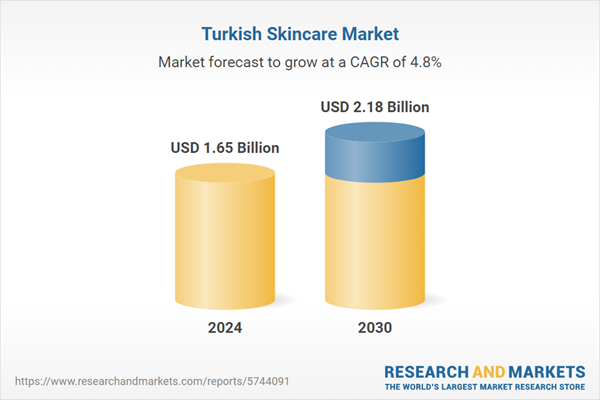Speak directly to the analyst to clarify any post sales queries you may have.
10% Free customizationThis report comes with 10% free customization, enabling you to add data that meets your specific business needs.
Key Market Drivers
Rising Consumer Awareness and Beauty Consciousness
A key driver of the Turkish skincare market is the growing public awareness of skincare routines and personal grooming, largely fueled by exposure to global beauty trends on platforms like Instagram, TikTok, and YouTube. This digital exposure, combined with the influence of beauty influencers, dermatologists, and content creators, is making consumers - particularly millennials and Gen Z - more knowledgeable about ingredients, skin conditions, and product efficacy. As consumers seek targeted treatments for concerns such as aging, acne, and dryness, the demand for specialized products like facial serums, eye creams, and facial oils is rising. This shift in awareness is also fostering demand among male consumers, with men’s grooming gaining greater cultural acceptance. As a result, the market is seeing increased traction for multi-functional, dermatologically tested, and high-performance skincare solutions that align with modern consumer expectations.Key Market Challenges
High Price Sensitivity and Limited Affordability for Premium Products
A major challenge in the Turkish skincare market is the pronounced price sensitivity among consumers, which has been exacerbated by ongoing economic uncertainty, inflation, and currency fluctuations. While there is clear interest in premium and organic skincare solutions, a large segment of the population remains constrained by budget limitations. This limits widespread access to higher-end or imported skincare brands, prompting consumers to opt for affordable local alternatives. The result is low brand loyalty, as purchasing decisions are often driven by price over preference. Additionally, international brands face pricing hurdles due to import tariffs, regulatory costs, and supply chain volatility, making it difficult to compete in terms of accessibility and value.Key Market Trends
Personalization and Custom Skincare Solutions
The trend of customized skincare is gaining momentum in Turkey, as consumers increasingly look for products tailored to their specific skin needs, types, and lifestyles. Personalization is being enabled by advancements in diagnostics, AI, and digital platforms, which offer recommendations through quizzes, apps, or in-store consultations. Emerging brands are capitalizing on this trend by offering bespoke formulations and personalized skincare regimens. Consumers are also drawn to customized packaging and bundled routines designed for targeted concerns. This personalized approach resonates particularly well with tech-savvy and wellness-conscious consumers, as it emphasizes transparency, ingredient efficacy, and user-specific benefits, thereby fostering deeper trust and long-term brand loyalty.Key Players Profiled in this Turkey Skincare Market Report
- Flormar Kozmetik Sanayi ve Ticaret A.Ş.
- Tanalize Kozmetik A.Ş.
- Hunca Kozmetik Sanayi ve Ticaret A.Ş.
- Rosense Kozmetik Sanayi ve Ticaret A.Ş.
- Note Kozmetik Sanayi ve Ticaret A.Ş.
- Evyap Sabun Yağ Gliserin Sanayi ve Ticaret A.Ş.
- Dalan Kimya Endüstri A.Ş.
- Maru.Derm Kozmetik Sanayi ve Ticaret A.Ş.
- Doa Kozmetik Sanayi ve Ticaret A.Ş.
- The Purest Solutions Kozmetik Sanayi ve Ticaret A.Ş.
Report Scope:
In this report, the Turkey Skincare market has been segmented into the following categories, in addition to the industry trends which have also been detailed below:Turkey Skincare Market, by Product Type:
- Face Care
- Body Care
Turkey Skincare Market, by Origin:
- Conventional
- Organic
Turkey Skincare Market, by Distribution Channel:
- Beauty Parlours/Salons
- Multi Branded Retail Stores
- Online
- Supermarkets/Hypermarkets
- Exclusive Retail Stores
- Others
Turkey Skincare Market, by Region:
- Marmara
- Central Anatolia
- Mediterranean
- Aegean
- Southeastern Anatolia
- Black Sea
- Eastern Anatolia
Competitive Landscape
Company Profiles: Detailed analysis of the major companies present in the Turkey Skincare market.Available Customizations:
With the given market data, the publisher offers customizations according to a company's specific needs. The following customization options are available for the report.Company Information
- Detailed analysis and profiling of additional market players (up to five).
This product will be delivered within 1-3 business days.
Table of Contents
Companies Mentioned
The leading companies profiled in this Turkey Skincare market report include:- Flormar Kozmetik Sanayi ve Ticaret A.Ş.
- Tanalize Kozmetik A.Ş.
- Hunca Kozmetik Sanayi ve Ticaret A.Ş.
- Rosense Kozmetik Sanayi ve Ticaret A.Ş.
- Note Kozmetik Sanayi ve Ticaret A.Ş.
- Evyap Sabun Yağ Gliserin Sanayi ve Ticaret A.Ş.
- Dalan Kimya Endüstri A.Ş.
- Maru.Derm Kozmetik Sanayi ve Ticaret A.Ş.
- Doa Kozmetik Sanayi ve Ticaret A.Ş.
- The Purest Solutions Kozmetik Sanayi ve Ticaret A.Ş.
Table Information
| Report Attribute | Details |
|---|---|
| No. of Pages | 70 |
| Published | May 2025 |
| Forecast Period | 2024 - 2030 |
| Estimated Market Value ( USD | $ 1.65 Billion |
| Forecasted Market Value ( USD | $ 2.18 Billion |
| Compound Annual Growth Rate | 4.8% |
| Regions Covered | Turkey |
| No. of Companies Mentioned | 11 |









